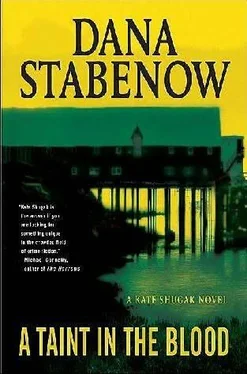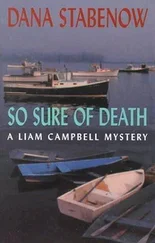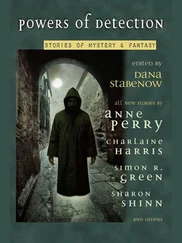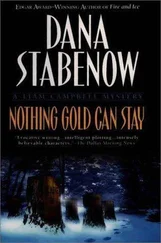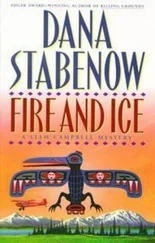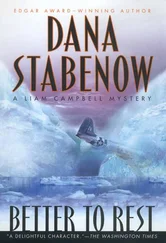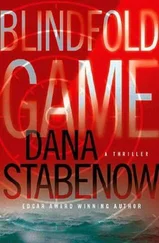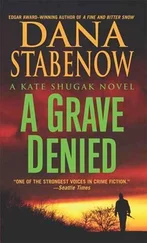“The people you’re going to be talking to on this job will expect a card. It’s part of the costume.”
“The costume for what?”
“I want you to find someone for me,” she said. “We’ll have to rent you a car, too, come to think of it.”
“Who do you want me to find?”
“Someone who disappeared thirty years ago.”
“America’s Mounties, that’s what they used to call us,” Morris Maxwell told Kate.
They were in the Pioneer Home, a big brick state-run old folks home on I Street. Morris Maxwell was a shrunken giant, pretty much confined to a wheelchair-“I can walk,” he told her, “I just choose not to”-shoulders stooped, hair completely gone from a wrinkled liver-spotted scalp, but there was a bright gleam in his eyes and he was quick to grin. He insisted she wheel him from his room into the common room so he could show all the other old geezers that he had a good-looking woman visiting him. Now they were sitting at a table over cups of weak coffee that no amount of sugar or creamer would improve.
“Alaska’s Mounties,” he repeated, “that was us, the territorial police. TPs, they called us. Weren’t that many of us. I remember figuring once that if you divided the square miles of Alaska by the number of state cops we had back then, each of us was responsible for eight thousand eight hundred and eighty-five square miles.” He cocked an eyebrow, and she looked suitably impressed.
“I was a pilot, so they assigned me to the Bush. I got forty-three hours in the air my first week.”
“What was it like?” Kate said.
“What was it like? What was it like? I’ll tell you what it was like.
It was eating corned beef out of a can for three days straight when you were weathered in in Tooksook Bay, and the weather running you out of corned beef and you having to eat fermented seal instead. It was taking a rolled-up magazine with you when you went outside to take a crap to beat the dogs off your ass in McGrath. It was having to be nice to every living soul no matter how much of an asshole they were or what god-awful thing they’d done in Nome, just so you wouldn’t get into a fight and mess up your uniform, which cost two hundred dollars, and the state sure as hell wasn’t paying for a replacement.“
Kate, entranced by and a little envious of this portrait of frontier law enforcement, said, “Tell me more.”
He tossed back his head and let out a cackle of laughter, and for a moment she saw him for the vibrant man he had been, instead of the shriveled-up hulk he was now. Just so would she be in fifty years.
“Can you get around without that chair?” Kate said.
His gaze sharpened. “Why?”
She jerked her head. “If you can, let’s blow this pop stand for a while.”
She took him to Club Paris for one of their justifiably famous steaks, and there was nothing wrong with Max’s appetite, or his teeth. Under the influence of his second martini, he began to wax even more eloquent about times gone by. He had a gift for storytelling, and after awhile the bartender stopped even pretending to polish the section of the bar closest to their table. The waitress just pulled up a chair. She wasn’t the only one.
Max had severe opinions on the topic of American presidents for whom he had worked security detail. “Eisenhower was a gentleman. Johnson was an asshole.” This led to reminiscing on the subject of statehood, which came in while he was a TP. “Some of the villages we went into, we were the only representatives of any government, state or federal, those folks had ever seen. I’d fly into a village, wearing my full uniform, and give a talk at the school on the new state and pass around my cuffs and my empty revolver. Most of them had never seen a revolver before, although they all had rifles and shotguns. Then I’d do it all over again for the village council that night. I remember one time-where was that? Chuathbaluk? Tuluksak? No, farther north, maybe Point Lay or St. Mary’s-I was the first they knew Alaska had become a state.”
He’d had some experience in giving medical care, too. “I stopped counting the babies I delivered after I got to ten. Of course that kind of thing could rebound on you-if you knew how to deliver babies, they were apt to think you could do other things, like splint a broken bone or dig out a bullet.” He finished off his martini and the bartender had a third in front of him in sixty seconds flat.
“We didn’t have a state penitentiary back then, and the state rented cells from the feds. Cost about ninety-eight dollars a day to put up state felons in federal prisons, which was probably why everybody’s sentences were so short. We never sent Natives up for longer than five years, they just didn’t survive being jailed. Some of them didn’t survive the five years.” He looked at Kate. “You’re Native.”
Kate nodded. “Aleut. Mostly.”
“Never got that far south.”
“I’m from Niniltna,” she said.
“Niniltna, Niniltna… Oh yeah, sin city for the Kanuyaq Copper Mine.”
“That’s the one.”
“How’d Aleuts wind up that far away from the water?”
“World War Two.”
“Huh. I remember I had to fly up to Niniltna one time to investigate an arson case. It was breakup. Lot of arson during breakup-everybody needs a start-up check in the spring. Still like that?”
“Pretty much.”
“Who’s the cop up there nowadays?”
“Jim Chopin.”
Max shook his head. “Never heard of him,” he said, “a Johnny-come-lately, eh?”
“I’ll say,” Kate said, but he was already off on his adventures in Barrow, where the Naval Arctic Research Laboratory just east of the village made the cardinal error of letting lumber sit around in a pile in the open. “Just a few boards at a time,” Max said, “that’s all, but pretty soon the pile was gone, and the next time I flew into Anaktuvuk Pass, about a hundred miles southeast, I noticed a brand-new addition on somebody’s house. The navy guys decided to chock it up to experience. They locked up their lumber after that, though. The invention of the snow machine really opened things up for people living in the Bush, I’ll say that for it.”
After about two hours of this, during which time Max never repeated a tall tale, Kate had to forcibly remind herself why she was there. The staff had to begin setting up for the dinner crowd and Max and Kate were left alone.
He cocked an eyebrow in her direction. “I’m guessing you didn’t haul this old carcass out on the town for the pleasure of listening to me yammer on, as delightful as I know that must be.”
She grinned. “You guessed right.”
“So?”
“So. You remember the Victoria Bannister Muravieff case?”
He looked at the ceiling through narrowed eyes. Kate could almost hear the card index flipping forward to the M’s . She wondered why they put these old cops out to pasture, the sharp ones like Max, walking, talking repositories of decades of Alaskan criminal history. They knew which oil company had bribed the sitting governor with subsidized travel in return for favorable exploration legislation, they knew which banker had bankrupted which local Native corporation with bad business practices, they knew where all the bodies of the strippers and hookers shot by the serial killer were buried. It was all there, available for the price of asking the question. And maybe a couple martinis. It seemed like such a waste.
“Muravieff,” Max said, “Muravieff. Thirty-one years ago. A house burned down in Bodenburg Butte in the valley. A seventeen-year-old boy was home, died from smoke inhalation. Turned out the mom had taken out a large life-insurance policy on him a few months before. She was convicted. Got life.”
Читать дальше
